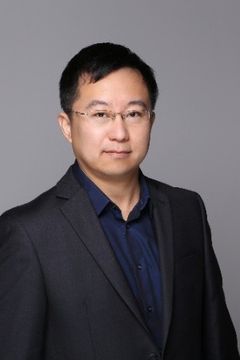Chao Zhang

Assistant Professor, Computational Biomedicine, Chobanian & Avedisian School of Medicine
- Education
- Computer Science, PhD, University of Missouri
Statistics, MS, University of Missouri
Computer Science, MS, University of Missouri
Automation, BS, Beijing Institute of Technology - Office
- 72 E. Concord Street
- chz2009@bu.edu
- Phone
- (573) 289-3632
As an interdisciplinary researcher, Chao Zhang has a background in systems biology, statistics, machine learning, software engineering, and especially in next-generation sequencing analysis, such as ChIP-Seq, WGS, WES, RRBS, RNASeq, ATACSeq, and Single-cell RNA sequencing.
His current researches focus on stem cell and cancer genomics.
In collaboration with Dr. Lorenz Studer’s group, Zhang presented the surprising finding that manipulating the nutrient composition of the culture medium can dramatically alter the pluripotent state of hPSC. With the comprehensive analysis of multi-layered molecular data, the group demonstrates that lipid-free culture conditions are sufficient to maintain human pluripotent stem cells in a naive-to-primed intermediate state via endogenous ERK inhibition and lipid supplementation can push the cells toward the primed cell state (Cell stem cell, 2019). Zhang also devoted significant effort on aging and neuron degenerative diseases research.
Although studying associations between microbiota and diseases are very popular in the past few years, most studies were limited to the gut microbiome, due to the lack of access to clinical samples and technical challenges to quantify local microbiota, and the functions of them have been simply overlooked and underestimated. Zhang demonstrated a novel computational pipeline to master the challenge of unbiased local microbiome detection from the sequencing data of small clinical endoscopic biopsy (Genome biology, 2015). He collected 50 gastric cancer samples and 106 gastric endoscopy biopsies from non-cancer population, the largest non-cancer gastric genomics study ever conducted. Besides microbiome characterization, Zhang also quantified the immune infiltration for the above samples from bulk and single cell RNASeq data. By integrating multiple layers of data from our samples and TCGA GI-tract studies, he discovered a strong association between expression of immune markers and local microbiome diversity, showing that local microbiome could be very important for shaping tumor microenvironment.
- Fields
- Hariri Faculty Affiliate